OUR

Q&A Cheryl Anderson 4

“He changed Canada for the better”

OUR

Q&A Cheryl Anderson 4

“He changed Canada for the better”
For those willing to start their day early (perhaps very, very early), there is an exceptional choral performance to be heard each spring and summer and continuing into early autumn.
The dawn chorus does not involve a human choir, however. Dawn is when birds begin to sing; at its peak, the sunrise bird chorus can involve many species singing together in one of nature’s most remarkable massed choirs.
The males do most of the singing, mostly to impress females.
Notes Andrew Darcy, a federal fisheries technician who describes himself as “a local naturalist with an affinity for birds” and who is also a board member of Nature Moncton, “here, in this kind of climate, it is the male birds that will do most of the singing first thing in the morning. It has to do with warning other males off their territory and also with mating.
“First thing in the morning only the strongest males will have enough energy to sing at that hour, especially after a cold night and not having eaten all night. So, it shows how fit they are.”
“And, at first light it is still too dark for birds to go out and forage. It is
also a time when predators will not be out and active. So, really, it is the best spare time they have in the day to sing.”
In southeastern New Brunswick the dawn chorus really kicks in in spring – typically in early May. While some of our most well-known songbirds, such as chickadees, winter in this region many songbirds are migratory and do not overwinter in Atlantic Canada. Those migrants return in a steady stream over the course of the spring and spend the summer and early autumn in the region’s forests, fields, wetlands, and coastal environments.
Notes Darcy, in tropical environments the dawn chorus can be in full song throughout the year and will last longer through the day.
Some birds are particularly early, even for early birds. Darcy says that Blackbirds and Thrushes, including Robins, may start well before sunup.
“The best time for the dawn chorus, though, when typically all birds join in, is the half hour before and the half hour after sunrise. Certain birds will still tend to sing first, though. Sometimes even in the middle of the night I will hear White-throated Sparrows and Robins calling.”

Birds will also continue calling through the day, “to keep saying, ‘this is my territory, keep away.’
“It takes a lot of energy to make that song, so only the strongest, fittest males will be able to make that song.” There is evidence as well that sound carries best in the early morning air, as much as twenty times farther when the air is calm and there is less competition from other sources of noise.
As migrating birds arrive in waves through the spring, new competitors arrive overnight, making it important for males to

Around the world at the library
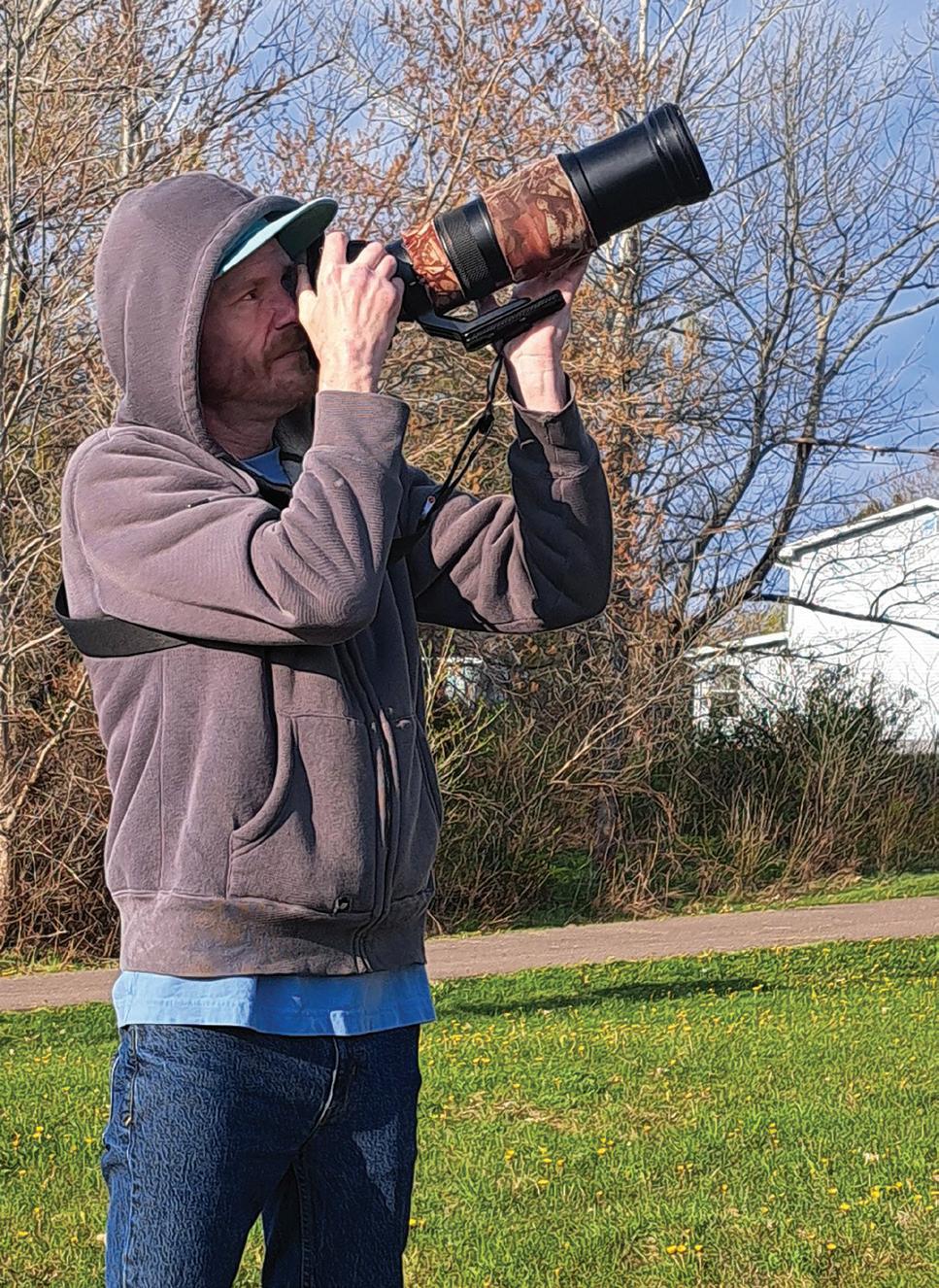
First thing in the morning only the strongest males will have enough energy to sing at that hour, especially after a cold night and not having eaten all night. So, it shows how fit they are.
re-establish their “top bird” status each new morning. Songbirds are not the only contributors to the morning choral symphony. Marsh birds such as mallards, teals, geese, soras, and snipes join in,
while in forested areas woodcocks, hawks, and owls can be heard. Crows and ravens never hesitate to add their voices, although not everyone finds their songs melodious.
Darcy notes that rare
birds also make an occasional appearance – including the Glossy Ibis, native to Florida, which has been spotted in marshes in Dieppe and has been spotted in the past near the Chateau Moncton.
“Birds follow natural pathways, including waterways and coasts, when they migrate. For birds coming up the Bay of Fundy this area is kind of a funnel. We get other rare birds here as well, sometimes juveniles who have come too far in their migration and eventually turn back.
on page 3
VOLUME 1, ISSUE 5
PUBLISHER: Eric Lawson
DESIGNER: Rachel Sheldrake
Published the first Thursday of every second month by A View of the Tides Communications
Distributed free in public buildings, retirement residences, convenience stores, and retail and service waiting rooms from Alma to Salisbury.
For advertising information, please contact Eric Lawson at 506 863 7324 or via viewofthetides@gmail.com


R
ise and shine – the dawn chorus of birdsong that we enjoy in New Brunswick is a treat for the province’s early risers. Andrew Darcy guides us through the experience of getting out early to hear birds in full song.
R.B. Bennett was the prime minister of Canada from 1930 to 1935 – and was born in Albert County. Bennett came from modest beginnings to be one of the most distinguished and accomplished Canadians of his, or indeed any, time. Janet Clouston and Dawne McLean help us understand his significance and introduce readers to the RB Bennett Centre at the Albert County Museum.
We have two Q&A segments in this issue – one with the recipient of the 2023 Molly Kool Award, Cheryl Anderson of Alma, and one with Shelli Geldart, the incoming president of the Salisbury Lions Club – the first female president in the Salisbury club’s history. Arlo Fisher of Riverview spent twenty-two years as an auxiliary RCMP officer – and was one of the first such officers in Canada. He shares his reminiscences with us.
And representatives of the Riverview branch of the public library help us understand the importance of reading to children and how the library helps with its Summer Reading Club.
A new columnist joins us for this issue as well – Julie Solbak explores the many aspects of wellness.
You will find information about Brooklyn Douthwright’s journey to the Olympics, a book walk in Riverview sponsored by the Women’s Institute from Hillsborough, and how to Love Your Covered Bridges, along with a Canada Flag Cake recipe from Evelyn’s Kitchen.
Enjoy your summer!
Enjoy!
Thank you.

Eric Lawson Publisher
2024 PUBLISHING DATES
JANUARY 4, 2024
MARCH 7, 2024 MAY 2, 2024
JUNE 27, 2024
SEPTEMBER 5, 2024 NOVEMBER 7, 2024
“In the winter, this is a great area for Short-eared Owls. There are lots of meadow voles, there are lots of muskrats, there is lots of food out there.”
Darcy, who conducts owl surveys, identifies five owls that are most common in New Brunswick: in summer, the Great Horned Owl, the Barred Owl, and the Northern Saw-whet Owl; in winter, the Shorteared and in some years the Snowy Owls.
There are occasional reports of the Long-eared Owl and the Boreal Owl as well.
They are joined as avian predators by Northern Harriers, which Darcy describes as the diurnal counterpart to the Great Horned Owl, and Peregrine Falcons, who raised chicks in a nesting box atop the Assumption Place building in Moncton this spring.
For those interested in learning more about the dawn chorus, and birding in general, Darcy recommends finding groups with similar interests online, and organizations like Nature Moncton
which can help beginning naturalists. Tools like Merlin (a free app from the Cornell University Ornithology Laboratory which identifies bird songs) can also help.
The latter tracks bird migration, but only in the United States. However, bird migrations across Maine are usually reflected the following day in New Brunswick.
Darcy believes that people often being their experience of being closer to nature with birding because birds are accessible. “You start realizing how much diversity is out there. You can go anywhere and find birds; you can even do it in your own backyard. It is not that physically intensive, and it need not be expensive. You need your eyes, your ears, and maybe a pair of binoculars.
“Birding increased in popularity during Covid. As people were home more, and that is when a lot of people got hooked on it. It becomes like Pokemon; you want to see them all, you want to collect them all.”


Imagine a community designed for your perfect day. At Parkland Riverview, you can always expect excellent service from our Great People. Meet Jodi Chesser, concierge, and Lisa Mellish, one of our lead servers, who are committed to serving residents and their loved ones by providing exceptional accommodations and care.



Recipient of the 2023 Molly Kool Award for contributions to her community.
The River View:
What was your reaction to being named as the recipient of the 2023 Molly Kool Award?
CherylAnderson: I was shocked because I have always been a volunteer and it just seems normal to me. My parents were volunteers, I was an only child, so I was just dragged along behind them. I did the same thing with my two daughters so now they are volunteers. Growing up in Alma, my father became mayor, and we were both on the old Jubilee committee – and I was a teenager. We have always been active in the church, I was a Sunday School teacher for years, my mother was the organist, I was the treasurer for the pastoral charge, now I am in the bell choir in Hillsborough. As I had children, I just kept getting involved in the things they were involved in. I got involved in the recreation council, I was president of the Home and School in both Alma and Riverside-Albert. I was involved in the Bayside Theatre amateur theatre group as an actor. There is very little I have not been involved in! I married a fisherman who was often at sea, so my kids just went everywhere with me. And I am a director of the Albert County Exhibition.
You have had a long association with the Girl Guides. Can you tell us about that?
A lot of my things are centred around kids. I started with Girl Guides when I was eight and now
have been involved for forty-seven years. I have always been camping with Girl Guides. Now I mostly look after the little ones on a weekly basis, but I travel with the older ones. I have taken groups as far as Smithers and Victoria in British Columbia, to the Yukon, Alberta, Ontario, next year we are planning to go to Newfoundland and Labrador. I have been on the provincial council. It just goes on; last night I was finishing with the little group and this morning I was gathering up camping gear because we have a group camping this weekend and then we are taking another group to Fredericton the next weekend. So, it never really stops! As my husband has always said, when you want something done ask a busy person, and it gets pencilled in there somehow.
You mentioned that you look after sports days at the Albert County Exhibition. Tell us about your sports involvement. Both of my girls were involved in a lot of sports, and one girl was in Highland Dancing. They were involved in basketball, volleyball, cross-country, and soccer, so we were always on the go, from Campbellton to Springhill to Summerside. One time I counted and for forty-eight days we had basketball, and I was working full time. But you organize yourself and off you go. With the Exhibition, I do the parade and the children’s sports days and
work at the dining hall. And we have a colouring contest for the kids in school.
That is an amazing level of commitment.
I also love to cook, so I have been the chief cook at large Girl Guide camps, leading the team that cooks for up to 450 people. I have cooked nine hundred cookies at my house over the course of a week. I do not use mixes; it is all from scratch. We walk into a camp on a Thursday night, and we cook straight out until Sunday at noon hour.
You have had a busy life. Looking back, I have had an interesting life. People have said I should write a book and I have said, “I haven’t got time.” My husband has an antique car, and we are involved in the antique car association too.
Tell us about your work for the Albert County Exhibition.
Well, you know how it goes. Someone said, “Cheryl, why don’t you come to the annual meeting?” And they needed somebody to help with the school sports days. I participated in them when I was a kid. The sports days were originally left to the teachers to organize and the teachers kind of rebelled; the teachers said, “we cannot go and look after all of our kids and try to do the sports days at the same time. All of a sudden, I was sitting there – I will

never forget it – everyone’s eyes were looking straight at me. I said, “sure, I can take it on for a couple of years.” It has now been more than twenty years.
What is keeping you busy right now?
I am a commissionaire at Fundy Park. I have baked in the restaurant for the last five years. Someone said to me, “you like to talk to people.” And that is my downfall, I am always interested in people.
I understand you had knee surgery, and even that did not slow you down.
I told the physiother-
apist after my surgery, “look, I do not have time for this. I have places to go, people to see.” She said, “you will need to come here for as long as is necessary.” Three weeks later she told me, “you can go.” I am one of these people that if I have to stay still it just drives me nuts. I do not drink tea or coffee and it is a standing joke that if someone offers me coffee, everyone else will exclaim, “for heaven’s sake do not give her coffee! She does not need caffeine!”
What was it like to receive the Molly Kool Award and be recognized for all the years of service to your community?
I am uncomfortable being recognized. I was just shaking up on that stage. If I could dress up as Minnie Pearl for a skit, I would be fine! The award is beautiful. The Sparks came and sang some songs, some Girl Guide leaders spoke. I would sooner stay in the background, but certainly I felt honoured.
Do you think you will ever slow down?
I doubt it. My daughters say, “Mom’s got her clipboard, and if she loses her clipboard everything stops!” If I have my clipboard then I am organized and then I just like to be busy.
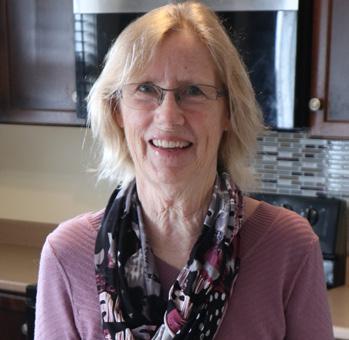
This month’s recipe is for
Maple Buttercream
Icing Ingredients :
• 1 cup butter softened
• 2 1/2 cups icing sugar
• 1 tsp vanilla extract
• 1/8 cup maple syrup
• 1/8 cup whipping cream
Cake Ingredients :
• 1 1/2 cups white sugar
• 1 cup butter softened
• 3 large eggs
• 1/2 cup liquid whipping cream
• 1 tsp vanilla extract
• 2 1/2 cups flour
• 2 tsp baking powder
• 1 tsp baking soda
• 1/2 tsp salt
• 1 cup milk
Instructions:
1. Preheat oven to 350 degrees F. Use rectangular shaped cake pan, 10 by 13 inch works well. Butter sides and bottom of pan. (You can also line the bottom with parchment paper.)
2. In a large bowl cream the sugar and butter together. Whisk or beat the 3 eggs and stir into the butter mixture, stir in the whipping cream and vanilla. Mix well until light and fluffy.
3. In a separate bowl add the flour, baking powder, baking soda and salt together. Mix well. Add 1/2 the flour mixture and 1/2 the milk to the butter mixture. Stir well. Add the remaining flour and milk. Mix well. Pour batter into the prepared pan. Spread to the corners and smooth the batter with a spatula.
4. Bake for about 25-30 minutes. The cake is ready when a toothpick inserted in the centre comes out clean. Place the pan on a cooling rack for 45 minutes.
5. While the cake is cooling make the icing.
6. In a medium bowl cream the butter. Add approximately 1/3 of icing sugar to the butter, mix well. Repeat until the all the sugar is mixed well into the butter. Add the vanilla. Again mix well. Pour in the maple syrup and whipping cream and stir the mixture until it is fluffy.
7. Run a knife between the sides of the cake and the pan. Invert the cake onto a cooling rack or a flat plate. Invert the cake again onto a flat serving plate. (You can leave the cake in the pan if you want to
serve it directly from the pan. It is also easier to transport that way!)
8. Spread the icing evenly over the top and sides of the cake.
9. Decorating - you will need 2 cups of strawberries. Cut enough round strawberry slices to make two or three rows to form the stripes on each side of the cake top, and cut several berries into triangular shaped slices to make the points of the maple leaf and to cover the centre of the maple leaf. Cut one small rectangular piece for the stem. (see photo)
10. Enjoy – Happy Canada Day!








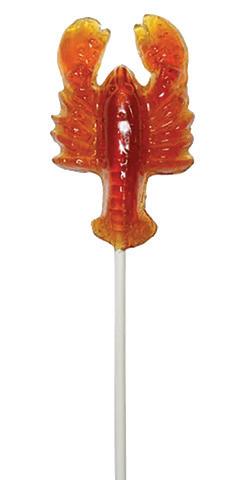
Arlo Fisher of Riverview first tried to join the Royal Canadian Mounted Police when he graduated from high school in 1955. He wore glasses, which at the time prevented him from being accepted. He pursued a lengthy career with the railway instead, but policing was still in his future.
In 1963 the RCMP introduced its auxiliary program, wherein volunteers assist regular officers with a range of duties. Fisher, not one to be deterred from a goal, signed on.
“One night my neighbour who was a stenographer at the police station came over and asked, ‘do you know they are starting an RCMP auxiliary here in Moncton?’ So, I hoofed it right over to Macbeath Avenue and presented myself. They handed me all the paperwork and said, ‘we will let you know in three to six months.’ They called me up and said, ‘do you want to come in and sign your acceptance papers?’ I said, ‘sure thing’ and became an auxiliary member.”
Fisher recalls his time as an auxiliary RCMP member as challenging, at times dangerous, but also as deeply rewarding.
He says that in his era auxiliary officers did “the same thing regular members did, except we did not carry a gun.
“We were supposed to be part of their emergency response team. If someone was lost in the woods or fell off a boat, we were part of the response. But the RCMP said, in effect, ‘you are unpaid members,’ and we did the same things they did, worked the same long hours they did. I would come home from work and there would be a police car sitting in the driveway. ‘Put your uniform on.’ ‘I haven’t had my supper.’ ‘Get your uniform on, I’ll buy you supper somewhere.’
“You might be out until one or two o’clock in the morning and then you had to come home and get some sleep and get up and go to your regular
job in the morning.
“One year I put in one thousand and thirteen hours, although most years it was a lot less than that.”
Fisher recalls that the work often entailed checking on noise complaints, traffic work including roadblocks, checking licenses, registrations and inspection stickers, “but if it came to a charge the regular member had to write up the charge. We did appear in court to give testimony, though.”
Because auxiliary officers rode along with regular officers, the work could sometimes be dangerous. “Three times I looked at the wrong end of a gun,” recalls Fisher. “I credit the first female member in New Brunswick with saving my hide” in the first such encounter.
Fisher and the officer responded to a domestic dispute. He says that when he went to the door he was greeted with a gun “that far from my head,” using his fingers to indicate a space of a few inches). The officer distracted the individual holding the shotgun to Fisher’s head, and the incident was defused, but had the potential to have been much more serious.
Cpl. Hans Ouellette, the media relations officer for the RCMP in New Brunswick, explains that the auxiliary program now has three tiers. Tier 3 still provides for auxiliary officers to be involved in activities like riding along with regular members on general duty patrol.
Tier 2 involves activities like providing disaster assistance, traffic control, and community presence on foot and on bicycle.
Tier 1 involves auxiliary officers in activities like Neighbourhood Watch, recruitment drives, and community events like bike rodeos. Each province and territory decides on which levels to offer. In New Brunswick, only Tier 1 is offered.
The RCMP continues to value auxiliary contributions, says Ouellette. “We rely on and greatly appreci-

ate our volunteers.”
Fisher recalls that being auxiliary officer could be challenging, but also retains fond memories. He has an RCMP Stetson, he says, that an officer gave him when the officer left to join another police force. “I was a Scout Master at that time, and he said, ‘that will make you a better Scout.’”
Twenty-two years is a long time to remain dedicated to an unpaid role that demanded a considerable time commitment and was potentially dangerous.
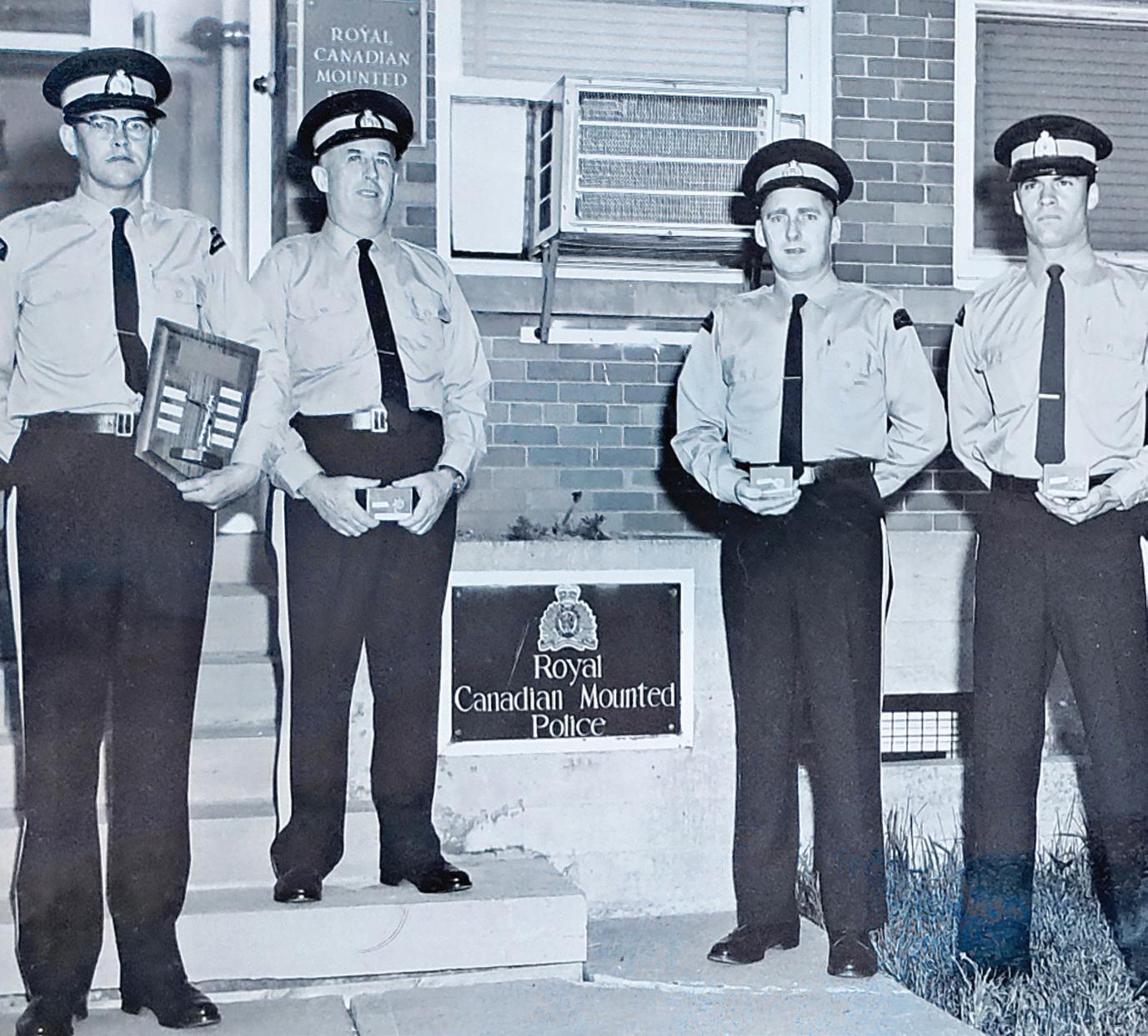

In 1985 Fisher was transferred to Montreal with the railway. “I applied for a leave, but they could not offer me one, so I had to resign.”
When he was forced to resign in 1985, Fisher says, “I felt like I was missing something.” Fisher ended up being in Montreal for nine years with the railway and had aged out of the auxiliary by the time he returned to New Brunswick. He ultimately joined the Commissionaires, including becoming involved in work that that organization undertakes on behalf of the RCMP.
Fisher says he stuck with it so long because “I had wanted so much to become an RCMP member, and I had been through the experience of being turned away, so when this came up it just seemed to fit my need.”
Information about the auxiliary program can be found at www.rcmp-grc.gc.ca/ auxiliary-program.










Association Heritage New Brunswick (AHNB) will present “Love Your Covered Bridges Days” from July 26th to August 5th. Community groups across New Brunswick, including in our readership area, will host events celebrating this important part of the province’s built heritage.
Covered bridges, long in decline, are making something of a comeback. Says Lawren Campbell, president of AHNB, “kudos to the Department of Transportation and Infrastructure (DTI) who more and more now are saying, ‘let’s put infrastructure money back into recreating and repairing these bridges’
once they are damaged, but also into maintenance so they don’t get to that point” where they need repair.
Campbell says that the future of covered bridges depends on a combination of community and heritage groups expressing their support for covered bridges and the province making their maintenance, and even new construction, a priority.
“The province is really starting to do its part in terms of making saving the bridges one of the top options … it’s a really positive thing to see the quality of the restoration work that has been done on covered bridges just in the past three to five years.”
Adds Kellie Blue-Mc-
Quade, executive director of AHNB, “we are now down to 57 covered bridges. That is also part of the reason (Love Your Covered Bridges Days) is so important. We do not want to lose any more. We need the public to be aware and we need their support.”
Built Heritage Officer Erin Jeffries says that this year’s events will be varied, “some as large as unveiling plaques and ribbon-cuttings, while others will be small; one community is planning a community tea … so, getting involved is easy and doesn’t have to be elaborate.”
This is the seventh year for Love Your Covered Bridges Days. Notes Blue-McQuade, “the event



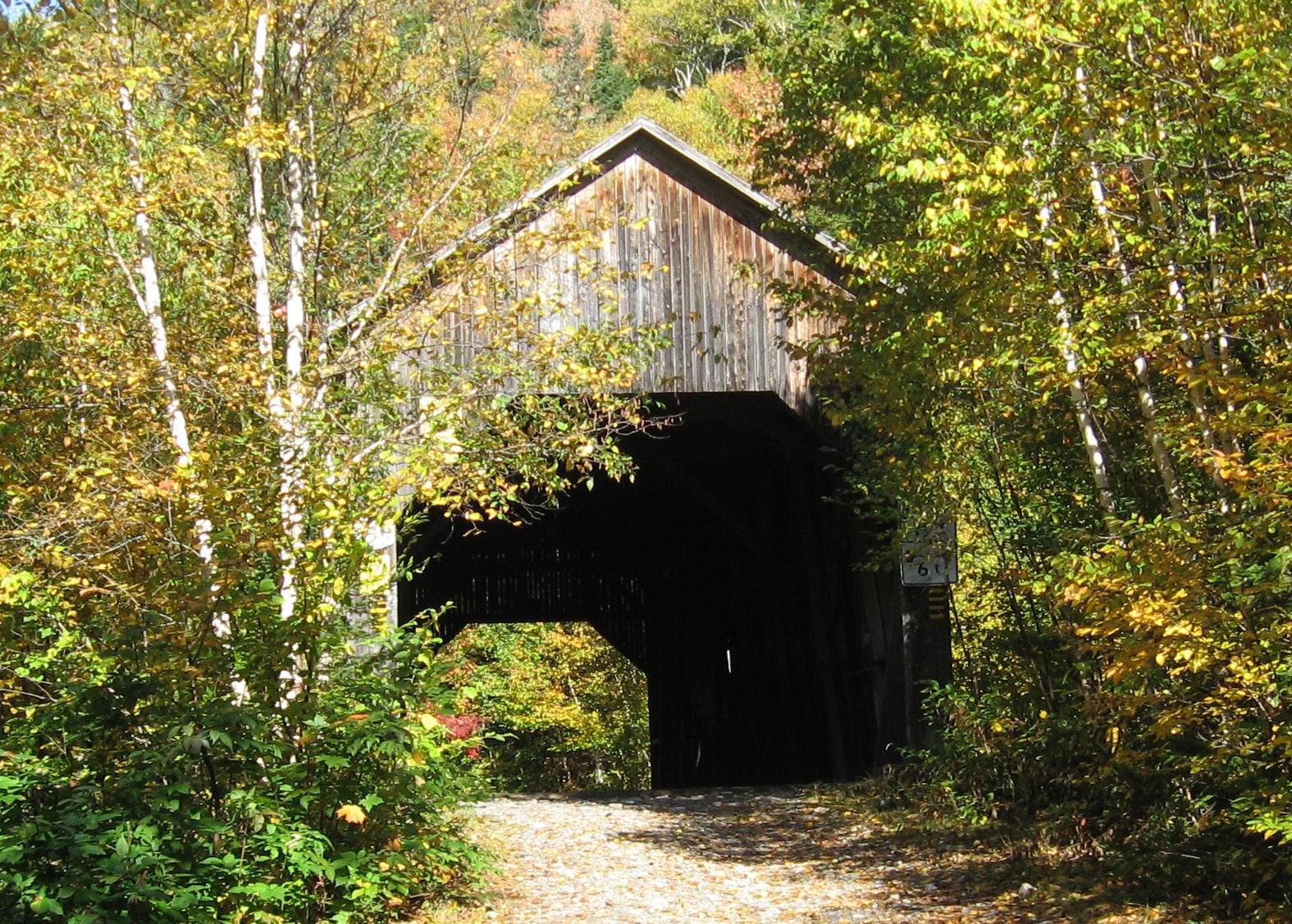
has grown from three days to eleven days because of the growth in interest.”
For information on
events by community, visit the AHNB website at https://ahnb-apnb.ca or visit the organization’s
Facebook page. Information will be updated as events are scheduled over the summer.

of Salisbury is the incoming president of the Salisbury Lions Club and Front Store Manager at Salisbury Guardian Pharmacy.
The River View:
You will be the first female president of the Salisbury Lions Club, is that right?
Shelli Geldart: Yes. This is our seventieth anniversary, and I will be the first female president of this club.
How did you get involved?
I was born and raised here so I had the opportunity to see firsthand, through my friends and family members being involved, the great things they were able to participate in and give back to the community. I was away for a number of years as life took me away from the Maritimes but have been back almost twenty years now. I had a number of jobs where I had to travel a lot, but this job, which I have had for about four years now, allows me to spend more time in my community. So, I had a little bit of time on my hands. I wanted to serve the community in some meaningful way and the Lions Club was the very first thing that came to mind. Growing up here I attended all the pancake breakfasts; one of my friends growing up, her dad was very involved with the Lions Club, so it just showed me a great way to serve the community. And, we get more back than we give.
What do you feel you get back?
I know that my time is being devoted to something that is going to generate funds that are going to help people in need. There is a comfort in that. Knowing that I belong to an organization that is so integrated into the community gives me that comfort level that I am making the best use of my time.
How long have you been a member?
Four years.
Service clubs are struggling with declining membership, which does not seem to be the case with this Lions Club. Why do you think that is?
Part of it is that for the first time we have people moving to the Maritimes instead of away. Some of those people are in their early retirement years and also have time on their hands and are looking for a way to contribute. Part of it is that younger folks think, that is what their dad did so that is what they are going to do, because they see the benefit, they know it has an impact on the community. Many youth organizations ask for fundraising support and we are happy to support youth. But, we also ask them to volunteer
along side us to introduce them to volunteerism as well. So, you will see them serving with us at the community breakfasts, for example. So, we are doing a better job of not just giving out the funds but of showing them how we generate the funds. And we are hoping, of course, that someday they will join us. Hey, it worked with me!
If you are vague about how money is being spent, people will be less likely to give. We try to be very transparent. And, all money raised is always distributed according to the global causes that we support, including diabetes, childhood cancer, vision, youth and anything community related.
Service clubs were once exclusively male. What do you think has brought women into these organizations?
In this day and age, it does not seem to make any difference, but back in the days you are speaking about there were, for example, Lions and Lionesses, and other service clubs were the same – there were branches where females could participate. Over the years we have established equality and realized that the differentiation

is not necessary. I have been part of this organization for four years and nobody has ever treated me differently because of my gender. I know that (my presidency) is a milestone, but I do hope that people just see it as another capable person taking on the role.
What do you want to accomplish in your term?
I would love to see membership continue to grow. I really just want to see the club continue to succeed. We are open to ideas, as long as it helps us serve the community.
What do you like most about your current job?
Ninety percent of the people who walk through the front door here I know by name. I love that. They
come to a smalltown pharmacy for a reason, they like that somebody knows their name.
The Salisbury Lions Club is known as a successful story. Why do you think that is?
It is not unlike what is happening here in the store – connecting with people. People are looking for connections.
The Albert County Museum hosts the RB Bennett Commemorative Centre, which celebrates the life and legacy of Richard Bedford Bennett, native son of Hopewell Cape and Prime Minister of Canada from 1930 to 1935.
The son of a shipbuilder, Bennett was born on July 3 in 1870.
Some historians have questioned whether Bennett did enough to pull Canada out of the Depression, an argument which Museum Managing Director Janet Clouston and Albert County Historical Society President Dawne McLean are quick to counter. Says Clouston, “he was a vigorous legislator and a tireless worker. He had a longterm vision of what needed to happen to get us out of the Depression. R.B. Bennett crafted Canada’s version of the New Deal.
“As the Depression wound on, he really leaned into social programs that were required to keep Canadians alive. Was that out of the Conservative playbook? Perhaps not, but it was the right decision to make at that time, during the Depression and a famine caused by drought that was putting wheat farmers out of business. He had to do everything he could to keep Canadians safe.
“That included employment insurance, which had never existed in Canada before, where Canadians who were out of work were receiving cheques in the mail. That was unheard of. What did people do with those cheques? They bought food and that kept the grocery stores open. That kept the Canadian economy moving.
“The Canadian Wheat Board was put into place because prices were collapsing. He set the standard and saved farmers. He did everything he could do as a lead-


er, sometimes against the wishes of his own party, but he did what he needed to do. He changed Canada for the better.”
Bennett’s other actions during the Depression included the founding of the Bank of Canada, which Clouston calls Bennett’s “proudest achievement. Before that if a bank collapsed all the money that people had went with it,
Clouston and McLean also point to minimum wage legislation, the creation of the Canadian Radio Broadcasting Commission, which evolved to become the modern Canadian Broadcasting Corporation, and the groundwork for what would become the Canada Pension Plan, as Bennett achievements that helped create modern Canada.
“During the economic collapse of the early 2000s, when stock markets were falling and we were going into recession, governments used the Bennett playbook. The Bank of Canada stayed strong.
so he formed the Bank of Canada to protect Canadians’ dollars.
“During the economic collapse of the early 2000s, when stock markets were falling and we were going into recession, governments used the Bennett playbook. The Bank of Canada stayed strong.”
Bennett entered the prime minister’s office as the wealthiest prime minister in Canadian history. His public reputation was as what today would be termed a workaholic: driven, single-minded, serious and high-minded, deeply religious, principled but also stern, and known for working punishingly long
hours. He was renowned as a brilliant and learned public speaker, but he typically spoke from behind a podium in a formal setting, not face to face with the ordinary voter.
Clouston points to the seeming dichotomy between Bennett’s private personality and his public persona. She acknowledges that Bennett was reserved in public, in many ways not a typical politician, formal with strangers and in no way a “hail fellow well met” sort of personality.
“Yes, he had a face he showed to the public. He wanted to be the most confident man in the room, the most capable man in the room. But he was also a loving uncle, he was a loving son to his mother, he was a loving brother to his sister Mildred.”
McLean, when speaking about the close relationship Bennett held with his mother, explained, “Henrietta Bennett greatly influenced her son by encouraging educational achievement and spiritual guidance in the religious doctrines
Continued on page 10

12-3 Saturday, July 6, Noon - 3 p.m. BBQ with Hot Dogs and Refreshments
You could win one of four $25.00 Gift Certifi cates or a handcrafted Birdhouse Funds raised will go to support the Albert County Food Bank and Positive Recreation Outcomes
Monday to Friday 10 a.m - 5:30 p.m. 378 Coverdale Road, Riverview




Continued from page 9
and disciplined teachings of the Methodist Church –“Do no harm but do good. Serve others. Be generous in giving without seeking praise.” Throughout his life, RB stayed true to those religious principles and values, instilled through his mother and the church fellowship in Hopewell Cape.
“RB held a private devotion to his family and even after moving out West in 1897 he visited family as often as possible. Following the death of his father in 1905, RB became head of the Hopewell Cape family and took responsibility that all was going well for his mother and sisters, Evelyn and Mildred.
Even after Bennett’s mother had passed in 1914 and his sisters had moved away from Hopewell Cape, McLean affirms, “Bennett never forgot his home community. When he was prime minister, he gave numerous donations to our local community that most people have never heard about, so it is important to share and preserve this local history.” McLean continues, “wanting to support education, Bennett established an endowment that supported the Hopewell Cape School for as long as it continued to operate. There was once a Hopewell Cape Boys Club, so the Club Leader wrote to Bennett and received funds to purchase blue sweaters with yellow letters “HCBC” for all the members, as well as other items for their activities.
“In 1930, a fire in the village of Hopewell Hill destroyed the United Church, where Bennett’s mother had been a member, and was married. A new Trinity United Church was built on the same site in less than 12 months at a cost of $8,000, to which Bennett contributed almost half of the construction cost. Later, when RB’s cousin expressed in a letter that the church missed having a bell, Bennett then donated a new bronze bell made by a well known foundry in London and shipped to the church where its Sunday peals rang out for many years.


“I have mentioned Bennett’s generous donations which were appreciated by the local Hopewell communities but were mostly unknown even then. Historians have estimated that Bennett gave away millions of his own money responding to individual letters from desperate Canadians and community requests during the years of the Depression. Night after night, he would read and respond to those letters, having his secretary place money in envelopes to mail to the needy families.
From Bennett’s will, generous endowments continue to support Dalhousie University and Mount Allison University as well as other institutions that continue to benefit Canadians today.”
McLean says that Bennett’s deep principles, and his private devotion to family members (although Bennett never married and had no children of his own), led him to rely extensively on his sister Mildred, to
whom he remained close all his life. Mildred accompanied Bennett on the campaign trail and was a constant support to him. Bennett served as prime minister during the toughest years of the Great Depression. He paid a political price for leading the country during those difficult years, facing a disillusioned electorate and losing to Mackenzie King in the 1935 election. He retired and moved to England in 1938. He was named 1st Viscount Bennett, of Mickleham in the County of Surrey and of Calgary and Hopewell in the Dominion of Canada, the only Canadian prime minister to be named to the British peerage.
Says Clouston, “leadership matters. R.B. Bennett was the right leader at the right time during the Depression. He put his own needs aside to ensure that he and his cabinet, the people who were elected to serve the country, worked tirelessly to save Canadians. And he did that.”
John Wishart recently retired as CEO of the Chamber of Commerce for Greater Moncton. He also enjoyed a long career in New Brunswick journalism.
By John Wishart
For many years, the signs entering Riverview proclaimed: “A Great Place to Grow’.
There’s truth in that adage. But as population booms, the town becomes more diverse, infrastructure needs rise, and competition for labour force increases, it’s not enough to rest on historic laurels as a nice, quiet place to live.
Over the past year, the Town of Riverview has done an impressive amount of planning to determine just how it wants to grow in the years ahead. There’s been a housing needs assessment study,
a commercial market threshold study and now a community economic development strategy.
I attended one of two public engagement sessions on the economic development strategy in late June. The sessions were an opportunity for citizens and other stakeholders to have input into the strategy that will guide Riverview’s economic growth over the next 5-10 years.
The new strategy will be built on the values of collaboration, creativity, diversity, and vitality. It will have three pillars – business, community, and lifestyle.
The preliminary strategy has deftly built a
framework around those pillars which helped focus the discussion at the public sessions.
When it comes to the business pillar, the key points include land use, what infrastructure the town will need, attracting talent, retail and culinary experience attractions, and business support.
For community, the focus is on population growth, a housing strategy, efficient and effective public transportation, educational opportunities, health care, and communication infrastructure –how does the town get the word out to taxpayers and potential visitors about all it has to offer.
In the lifestyle bucket, the sessions discussed a tourism strategy (Riverview is at one end of the completed Fundy experience from St. Martins through Fundy Park and Albert County). There was also talk about the importance of a vibrant arts and culture community, recreational facilities (hurray for the new recreational complex) and how to best market and promote the town.
Riverview is on the verge of significant growth. It is encouraging to see town council and officials properly plan for that growth to ensure Riverview remains a great place to grow.


Riverview swimmer Brooklyn
Douthwright has qualified to represent Canada at the Olympic Games, the first New Brunswick swimmer to do so since Marianne Limpert twenty-four years ago.
Douthwright says she knew she needed to finish no worse than fourth in her heat to qualify for the 100-metre freestyle.
“I had to work up the nerve to look at the results. When I saw I had finished third, I experienced every emotion all at once, although my mom was even more nervous than I was.
“This is just really rewarding.”
Douthwright also qualified in the 4x100 metre relay.
“I have always wanted to represent my country. I am so proud to represent Canada.”
As for what comes between now and the start of the Paris Olympics beginning July 26th, Douthwright says simply, “back to work. I have learned to trust the process. I just want to give my best performance.”
Douthwright’s mother, Shannon Komadina-Douthwright, notes that her daughter has mastered what she believes is the right way
to approach her training and her goals.
Says Komadina-Douthwright, “nurture the dream and always be humble and kind. Do not take credit away from your teammates and help each other get better. Hard work and determination with a healthy mindset can pay off.
“Brooklyn has mastered these things along with a very strong work ethic and that is what I am most proud of. I am happy for her qualifying for the Olympics as that is what she has worked so hard to achieve, but honestly, I am mostly proud of her as a person.”
This summer the Hillsborough Women’s Institute (WI) will offer an opportunity to read a book while walking in Manchester Park.
The WI is sponsoring a Trail Book Walk from May to September. The pages from the book “Dear Girl” will be displayed in sequence on a series of posts circling the park so that the book can be read while strolling.
Says Ruth Anne Robinson, vice-president of the Hillsborough branch, “our motto is ‘For Home and Country,’ and our mission is to do things that help our commun-
ity. This book sends such a positive message to girls that says, ‘be yourself.’”
“Dear Girl” is written at approximately a Grade Three reading level.
The WI in Hillsborough has been in exist-
ence for one hundred and twelve years. The book walk is offered in conjunction with the town’s department of recreation.
is





Health is a complicated puzzle; some of its larger pieces include physical fitness, mental health and emotional well-being. Each contributes separately to our overall health, but they also interrelate. As we age, understanding how these three aspects of health affect each other and how they contribute to our overall well-being is crucial to maintaining a high quality of life.
Physical fitness refers to the condition of our physical body. Exercise, nutrition and sleep all contribute to a good level of fitness. Regular physical activity can improve the condition of our heart, muscles and bones. It can improve flexibility, mobility, balance, help maintain a healthy weight, prevent falls and reduce the
risk for illness.
Mental health involves functions such as memory, focus and reasoning as well as our ability to cope with the stressors in life. It can impact how we think, feel and act. Just like exercise for the body we can challenge the brain with activities like reading, writing, and puzzles or games.
Emotional wellbeing is the ability to recognize, understand and manage emotions and to maintain healthy relationships. A good support network of family, friends, counselors or psychologists can all help.
The overlap of each aspect on the other is significant. Our physical health can increase mental and emotional well-being by releasing endorphins making us feel happier. Exercise can also improve
sleep and stress levels, both of which will contribute to us feeling better emotionally and mentally. A higher level of emotional health will increase motivation for physical activity. When our mental health is good, motivation to exercise and spend time with others is increased leading to better overall fitness and emotional well-being. It is so important, especially as we age, to recognize when any one part of our puzzle needs an adjustment. They all affect the other pieces so we must ensure to take care of each one to maintain a quality of life we all hope to enjoy for years to come.
Julie Solbak, BscKin, CKA Owner, Just Fit Fitness Center and Just Move Health Studio


We’re bringing a party to each ward! Join us for a FREE barbeque, bouncy castle, booths from community organizations, a chance to meet your elected officials, and more!

4: August 8



The Summer Reading Club at New Brunswick’s public libraries, including the Riverview branch at 34 Honour Court, will have as its 2024 theme “Around the World in Eight Weeks.”
The program will introduce participants to books from all seven continents along with local titles.
The Riverview library has hired two summer leaders to guide the program, Kai Cote and Natasha McCarthy. Says library director Elizabeth Boutilier, “this is a program that is designed to help children maintain their reading habits through the year. It often happens that when the school year ends reading habits decline a bit, so our role is to come up with some fun initiatives, programs, and motivators to keep kids reading through the summer.”
She adds that, with an average of 300 children participating just at the Riverview branch each year, “we need two Summer Reading Club leaders every summer!”
Cote and McCarthy emphasize their own youthful introductions to reading (McCarthy participated in Summer Reading Club at the Riverview library herself as a child) and ongoing love of reading as being important motivators for them as leaders.
“I was interested in finding a way to work with kids this summer,” says Cote. Adds McCarthy, “I have thought about becoming a kindergarten teacher. So, this just fit really well and I love reading, so, may as well spend my summer in a library.”
Cote notes that she enjoys her role helping children develop a love of reading. “It is so important for their development overall for kids to have that early experience in devel-

oping their world view and their imagination. It feels like important work.”
For McCarthy, “it is really important to be that positive source of encouragement. I used to coach figure skating and the kids used to get so excited when they could do something for the first time. It was very nice to be excited with them when they could finally stand up all by themselves or stop all by themselves.
“That transfers over to reading. The kids get so excited when they finish a book.”
Library Assistant Emilie Martin adds that certain titles and types of books “never go out of style, such as graphic novels, chapter books, the Magic Tree House series, Captain Underpants,
books that are silly and adventurous. Although, ten to twelve year olds like scary books.”
And yes, there are lots of requests for books related to Pokémon.
fiction and non-fiction.
“We get so many kids and families that come in and pick out so many books. It does not look like it is declining. Reading remains very much a
They are as excited to be learning as they are to read a fun story … it doesn’t matter what they want to read, reading is reading, and it’s good.
She also notes that the current generation, despite growing up in the world where so much information is gleaned from screens, is still deeply engaged by traditional books, both
popular activity.”
She notes that while story time books for younger children focus more on narrative stories, “when you see kids checking out books both (fiction and non-fiction) are very
popular. For non-fiction, kids will have a particular interest and they want to learn more about it so non-fiction would be as popular as fiction.
“They are as excited to be learning as they are to read a fun story … it doesn’t matter what they want to read, reading is reading, and it’s good.”
Some of the families that participate in Summer Reading Club are new to the library, says Boutilier. She and her staff find having those families return during the following months and years particularly rewarding, as is the interaction with parents during Reading Club itself.
“Watching parents watch us encourage the kids is really fun, and something parents appreciate. The
kids really look to the Reading Club leaders, they just love that encouragement they receive.”
Participating children receive a Passport reflecting the Around the World in Eight Weeks theme to help them track their reading progress. The program is designed for schoolchildren, but participants range in age from preschoolers to age twelve.
Parents can register their children online, at the New Brunswick Public Libraries site, or in person at the library. Registration remains open all summer.
A launch party is scheduled for June 29th at the library from 10 a.m. to noon. The first day of Summer Reading Club activities will be July 2nd.
Wished,
of a map heist, e.g. Wished, as a Feedbag fill past plump
Wished, as a
Across
In need of a map
1. In need of a map
5. Bank heist, e.g.
Responsibility Teachers at the perhaps Revival setting Airline's home base 20th-century movement like a show back Happen upon wheels, -smart
Across
10. Wished, as a farewell
1. In need of a map
1. In need of a map
14. Feedbag fill
5. Bank heist, e.g.
5. Bank heist, e.g.
14. Feedbag fill
Feedbag
15. Way past plump
15. Way past
16. Responsibility
Revival setting 20. Airline's home base
17. Teachers at the prom, perhaps
21. Early 20th-century art movement
19. Revival setting
20. Airline's home base
22. Walk like a show horse
21. Early 20th-century art movement
Responsibility 17. Teachers at the prom, perhaps 19. Revival setting 20. Airline's home base 21. Early 20th-century art movement
24. Hang back 26. Happen upon 28. Pricy wheels, slangily
22. Walk like a show horse
22. Walk like a show horse
24. Hang back 26. Happen upon 28. Pricy wheels, slangily
24. Hang back 26. Happen upon
28. Pricy wheels, slangily
31. Street-smart
31. Street-smart 32. Highest point 33. Bite off too much 35. Pipe material 38. Snack bar?
Way past plump
32. Highest point
Defendant in a lawsuit
31. Street-smart 32. Highest point
Horticulturist's study
About, old-style
___ and anon
Sovereign's staff
Like a cheater's deck
15. Way past plump
61. Kirk's ship 64. Potatoes, perhaps 65. Lord's subject 66. Doomsayer's sign
Wished, as a farewell
16. Responsibility
10. Wished, as a farewell
Responsibility
40. Military bigwig 42. Work on a tan
33. Bite off too much
61. Kirk's ship
61. Kirk's ship
35. Pipe material
Run-down car
Teachers at the prom, perhaps
17. Teachers at the prom, perhaps
Walk like a show
14. Feedbag fill
15. Way past plump
Revival setting
19. Revival setting
Hang back
16. Responsibility
Airline's home base
Happen upon
Pricy wheels, slangily 31. Street-smart 32. Highest point
33. Bite off too much 35. Pipe material
38. Snack bar?
38. Snack bar?
43. "Always on My Mind" singer
40. Military bigwig
40. Military bigwig
45. Way to pay
42. Work on a tan
64. Potatoes, perhaps 65. Lord's subject
64. Potatoes, perhaps 65. Lord's subject
66. Doomsayer's sign
Doomsayer's sign
67. Follow, as advice
Follow, as advice
42. Work on a tan
17. Teachers at the prom, perhaps
20. Airline's home base
21. Early 20th-century art movement
21. Early 20th-century art movement
14. Feedbag fill 15. Way past plump 16. Responsibility 17. Teachers at the prom, perhaps 19. Revival setting
19. Revival setting
43. "Always on My Mind" singer
43. "Always on My Mind" singer
Copycat 47. Like some birthday parties
68. Shopping binge
69. "___ #1!"
22. Walk like a show horse
22. Walk like a show horse
20. Airline's home base
20. Airline's home base
45. Way to pay
45. Way to pay
Down
24. Hang back
33. Bite off too much
24. Hang back
21. Early 20th-century art movement
21. Early 20th-century art movement
26. Happen upon
35. Pipe material
26. Happen upon
22. Walk like a show horse
38. Snack bar?
22. Walk like a show horse
28. Pricy wheels, slangily
28. Pricy wheels, slangily
24. Hang back
31. Street-smart
Highest point off too much material bar?
24. Hang back
40. Military bigwig
31. Street-smart
26. Happen upon
42. Work on a tan
26. Happen upon
32. Highest point
32. Highest point
49. Some three-digit numbers
46. Copycat
46. Copycat
61. Kirk's ship
64. Potatoes, perhaps 65. Lord's subject
Cooking meas.
1. Ness, for one
47. Like some birthday parties
28. Pricy wheels, slangily
43. "Always on My Mind" singer
47. Like some birthday parties
66. Doomsayer's sign
49. Some three-digit numbers
67. Follow, as advice
61. Kirk's ship
33. Bite off too much
33. Bite off too much
28. Pricy wheels, slangily
53. Before, in verse 54. Type of owl 55. Gyro holder 57. Harbor vessel 60. Every which way
49. Some three-digit numbers
53. Before, in verse
53. Before, in verse
9. Defendant in a lawsuit
1. Ness, for one 2. Where Pearl City is
3. Ranch worker
Elizabeth McGovern's character on "Downton Abbey"
2. Where Pearl City is
10. Horticulturist's study
4. Cooking meas.
Ranch worker 4. Cooking meas.
Home
11. About, old-style
12. Conical-cap wearer
54. Type of owl
61. Kirk's ship
54. Type of owl
68. Shopping binge
61. Kirk's ship
64. Potatoes, perhaps
35. Pipe material
31. Street-smart
35. Pipe material
31. Street-smart
38. Snack bar?
38. Snack bar?
32. Highest point
55. Gyro holder
9. Defendant in a lawsuit
13. Fragrant compound
Sinner's punishment 8. Opposite of WNW
5. Elizabeth McGovern's character on "Downton Abbey"
55. Gyro holder
64. Potatoes, perhaps
57. Harbor vessel
57. Harbor vessel
64. Potatoes, perhaps
65. Lord's subject
32. Highest point
40. Military bigwig
Military bigwig on a tan "Always on My singer to pay Copycat some birthday three-digit
40. Military bigwig
33. Bite off too much
33. Bite off too much
65. Lord's subject
45. Way to pay 46. Copycat 47. Like some birthday parties
65. Lord's subject
66. Doomsayer's sign
42. Work on a tan
42. Work on a tan
35. Pipe material
35. Pipe material
38. Snack bar?
38. Snack bar?
Some three-digit numbers
43. "Always on My Mind" singer
43. "Always on My Mind" singer
9. Defendant in a lawsuit
5. Elizabeth McGovern's character on "Downton Abbey"
18. Perimeter
6. Home
6. Home
9. Defendant in a lawsuit
23. Talk a blue streak
10. Horticulturist's study
60. Every which way
61. Kirk's ship
40. Military bigwig
40. Military bigwig
66. Doomsayer's sign
60. Every which way
61. Kirk's ship
66. Doomsayer's sign
67. Follow, as advice
45. Way to pay
45. Way to pay
42. Work on a tan
42. Work on a tan
46. Copycat
46. Copycat
43. "Always on My Mind" singer
43. "Always on My Mind" singer
41. ___ and anon
Conical-cap wearer
9. Defendant in a lawsuit
Fragrant compound
Horticulturist's study
10. Horticulturist's study
Perimeter
About, old-style
11. About, old-style
Talk a blue streak
Conical-cap wearer
Congregation's cry
12. Conical-cap wearer 13. Fragrant compound
Fragrant compound
18. Perimeter
Perimeter 23. Talk a blue streak 25. Congregation's cry
23. Talk a blue streak
25. Congregation's cry
27. Freight
41. ___ and anon
Freight
28. Overhead items
44. Sovereign's staff
Overhead items
Shade of beige
29. Shade of beige
Example-setters
Outfitted
Chilling, say
41. ___ and anon
Bona fide 35. 8 to 11, on TV
44. Sovereign's staff
Put to shame
Textile fiber
30. Example-setters 34. Bona fide
35. 8 to 11, on TV
___ and anon
41. ___ and anon
36. Flower holder
46. Like a cheater's deck
Lose ground
48. Run-down car
Military blockade
Put to shame 50. Textile fiber
49. Put to shame
Nursery purchase
50. Textile fiber
Kind of ID
Lose ground
51. Lose ground
Actor Wilder
Military blockade
69. "___ #1!"
47. Like some birthday parties
47. Like some birthday parties
45. Way to pay
45. Way to pay
46. Copycat
49. Some three-digit numbers
46. Copycat
49. Some three-digit numbers
52. Military blockade
Quick drink
Nursery purchase
56. Nursery purchase
58. Kind of ID
Theater section
Kind of ID 59. Actor Wilder
59. Actor Wilder
62. Quick drink
Quick drink
63. Theater section
Theater section
Flower holder
44. Sovereign's staff
10. Horticulturist's study
46. Like a cheater's deck 48. Run-down car 49. Put to shame 50. Textile fiber 51. Lose ground
37. Outfitted
7. Sinner's punishment
10. Horticulturist's study
7. Sinner's punishment
25. Congregation's cry
11. About, old-style
67. Follow, as advice
67. Follow, as advice
64. Potatoes, perhaps
64. Potatoes, perhaps
65. Lord's subject
44. Sovereign's staff
Military blockade
68. Shopping binge
68. Shopping binge
69. "___ #1!" Down 1. Ness, for one 2. Where Pearl City is 3. Ranch worker 4. Cooking meas.
68. Shopping binge
69. "___ #1!"
69. "___ #1!"
65. Lord's subject
66. Doomsayer's sign
66. Doomsayer's sign
Down
Down
8. Opposite of WNW 9. Defendant in a lawsuit
46. Like a cheater's deck
11. About, old-style
8. Opposite of WNW
27. Freight
Outfitted 39. Chilling, say 41. ___ and anon 44. Sovereign's staff 46. Like a cheater's deck 48. Run-down car
39. Chilling, say
46. Like a cheater's deck
11. About, old-style
9. Defendant in a lawsuit
48. Run-down car
48. Run-down car
12. Conical-cap wearer
Nursery purchase 58. Kind of ID
9. Defendant in a lawsuit
28. Overhead items
12. Conical-cap wearer
12. Conical-cap wearer
Put to shame
49. Put to shame
Sovereign's staff
Sovereign's staff
10. Horticulturist's study
67. Follow, as advice
Fragrant compound
49. Put to shame
13. Fragrant compound
10. Horticulturist's study
Actor Wilder
Textile fiber
Like a cheater's deck
Like a cheater's deck
29. Shade of beige
13. Fragrant compound
18. Perimeter
11. About, old-style
18. Perimeter
67. Follow, as advice
68. Shopping binge
1. Ness, for one
30. Example-setters
Perimeter 23. Talk a blue streak
50. Textile fiber
11. About, old-style
12. Conical-cap wearer
23. Talk a blue streak
Quick drink 63. Theater section
Lose ground
Run-down car
Run-down car
12. Conical-cap wearer
34. Bona fide
23. Talk a blue streak
68. Shopping binge
1. Ness, for one
69. "___ #1!"
69. "___ #1!"
51. Lose ground
Put to shame
2. Where Pearl City is
5. Elizabeth McGovern's character on "Downton Abbey" 6. Home
25. Congregation's cry
13. Fragrant compound
Congregation's cry
13. Fragrant compound
18. Perimeter
Freight
50. Textile fiber 51. Lose ground 52. Military blockade
Military blockade
Textile fiber
35. 8 to 11, on TV 36. Flower holder
27. Freight
18. Perimeter
25. Congregation's cry
2. Where Pearl City is
3. Ranch worker
Solution for Crossword #15
1. Ness, for one 2. Where Pearl City is
27. Freight
28. Overhead items
23. Talk a blue streak
37. Outfitted
53. Before, in verse
53. Before, in verse
47. Like some birthday parties
54. Type of owl
54. Type of owl
Before, in verse of owl holder Harbor vessel which way
47. Like some birthday parties
49. Some three-digit numbers
55. Gyro holder
55. Gyro holder
49. Some three-digit numbers
53. Before, in verse
57. Harbor vessel
57. Harbor vessel
53. Before, in verse
60. Every which way
7. Sinner's punishment
3. Ranch worker
Down
4. Cooking meas.
8. Opposite of WNW
Ranch worker
1. Ness, for one 2. Where Pearl City is
4. Cooking meas. 5. Elizabeth McGovern's character on "Downton Abbey"
Home
5. Elizabeth McGovern's character on "Downton Abbey" 6. Home 7. Sinner's punishment
29. Shade of beige
54. Type of owl
54. Type of owl
60. Every which way
Cooking meas. 5. Elizabeth McGovern's character on "Downton Abbey"
55. Gyro holder
55. Gyro holder
Home
57. Harbor vessel
57. Harbor vessel
60. Every which way
60. Every which way
Ranch worker
Cooking meas. 5. Elizabeth McGovern's character on "Downton Abbey"
23. Talk a blue streak
28. Overhead items
39. Chilling, say
Overhead items 29. Shade of beige 30. Example-setters 34. Bona fide
Sinner's punishment
1. Ness, for one 2. Where Pearl City is 3. Ranch worker 4. Cooking meas. 5. Elizabeth McGovern's character on "Downton Abbey"
Home
7. Sinner's punishment
25. Congregation's cry 27. Freight
25. Congregation's cry
27. Freight
30. Example-setters
29. Shade of beige
30. Example-setters 34. Bona fide
Opposite of WNW
8. Opposite of WNW
28. Overhead items 29. Shade of beige
8 to 11, on TV 36. Flower holder
34. Bona fide 35. 8 to 11, on TV 36. Flower holder 37. Outfitted 39. Chilling, say
29. Shade of beige
30. Example-setters 34. Bona fide 35. 8 to 11, on TV
Outfitted
34. Bona fide
35. 8 to 11, on TV
Home 7. Sinner's punishment 8. Opposite of WNW
8. Opposite of WNW
37. Outfitted
7. Sinner's punishment
8. Opposite of WNW
28. Overhead items
36. Flower holder
35. 8 to 11, on TV 36. Flower holder
Flower holder
37. Outfitted
39. Chilling, say
39. Chilling,
Nursery purchase
Put to shame 50. Textile fiber
Kind of ID
Kind of ID
Lose ground
52. Military blockade 56. Nursery purchase
Nursery purchase
Lose ground 52. Military blockade
Military blockade
Actor Wilder
58. Kind of ID
Quick drink
Nursery purchase
59. Actor Wilder 62. Quick drink
Kind of ID
Theater section
63. Theater section
30. Example-setters
Nursery purchase 58. Kind of ID 59. Actor Wilder 62. Quick drink
Theater section